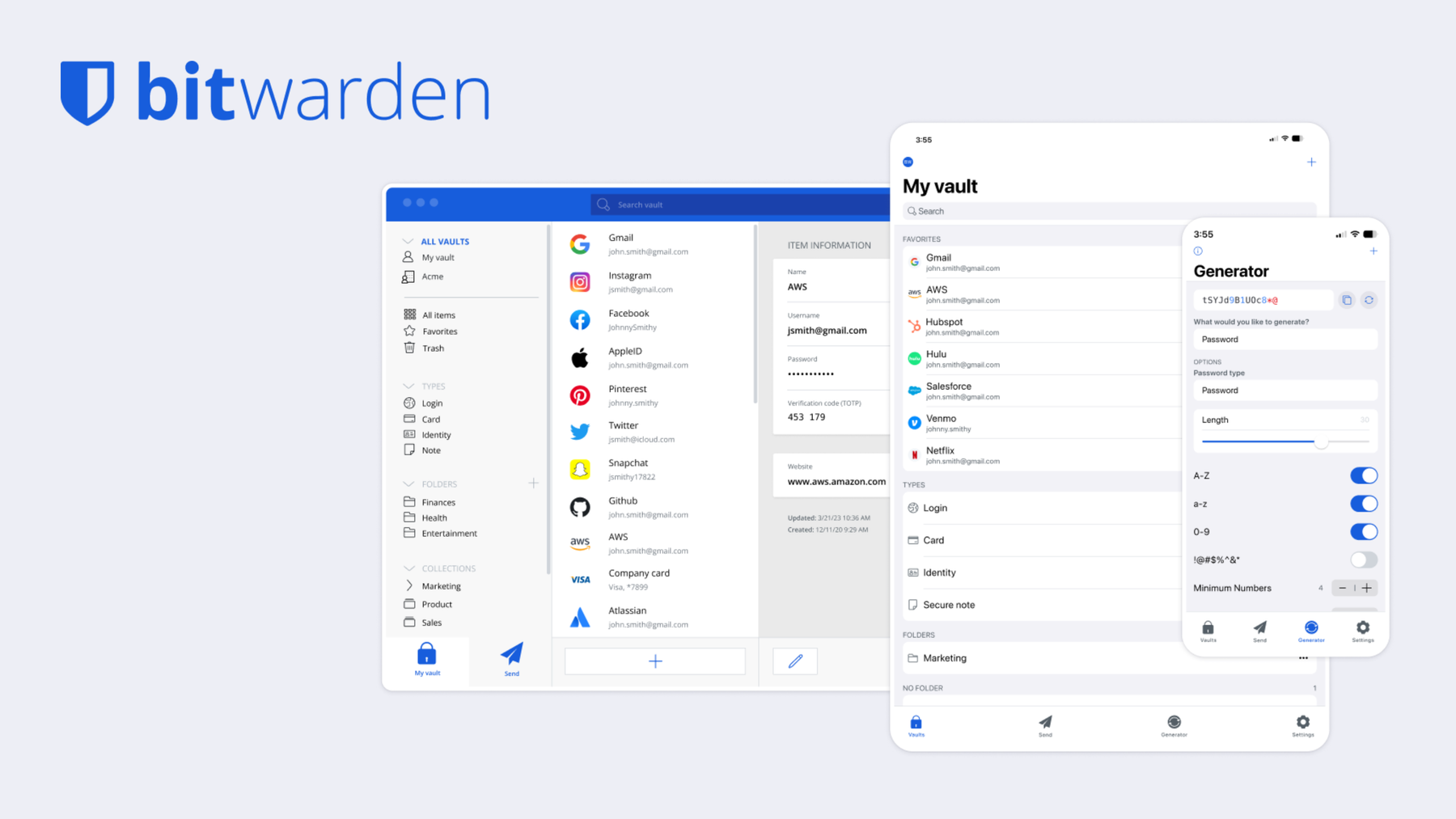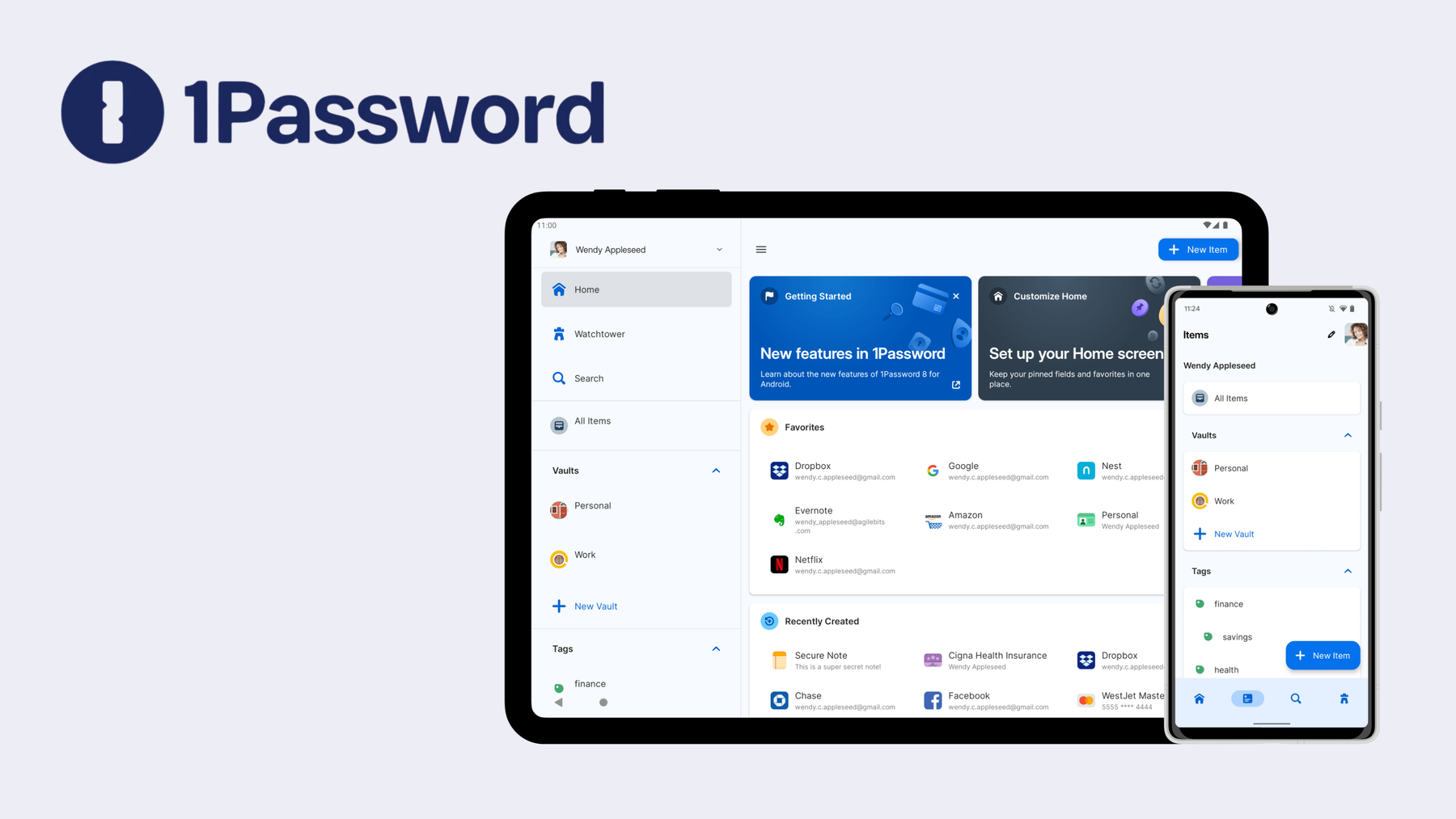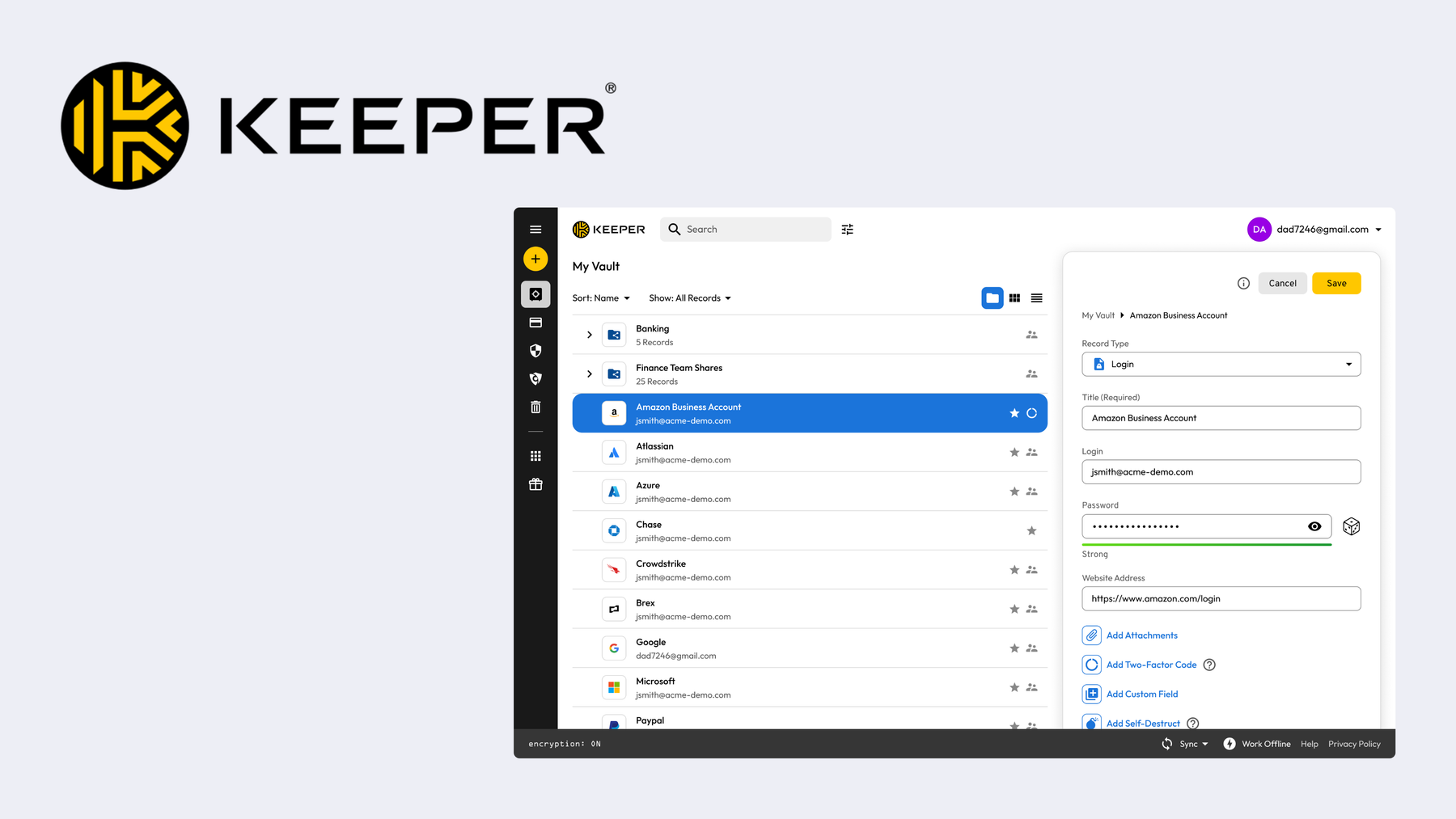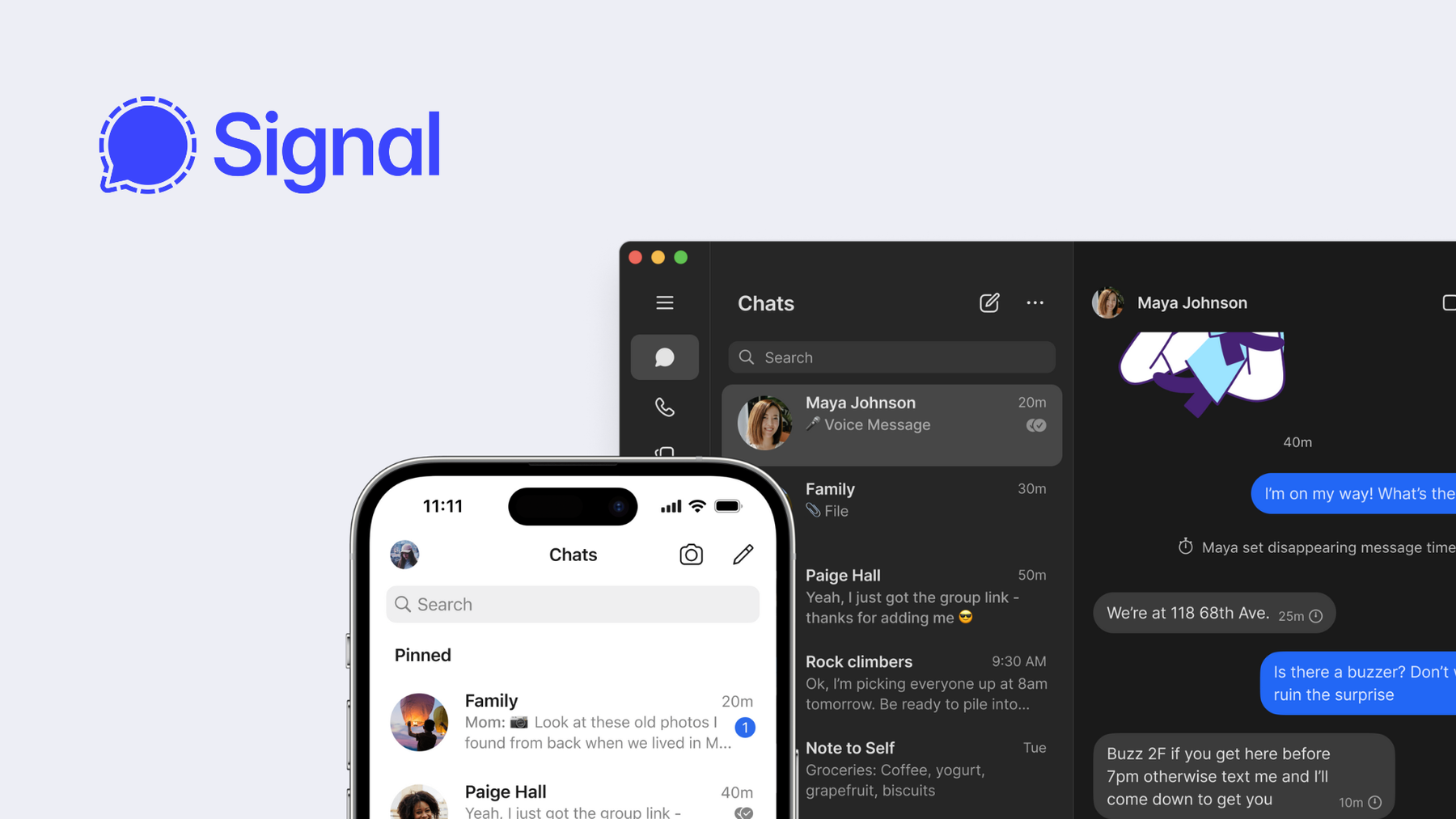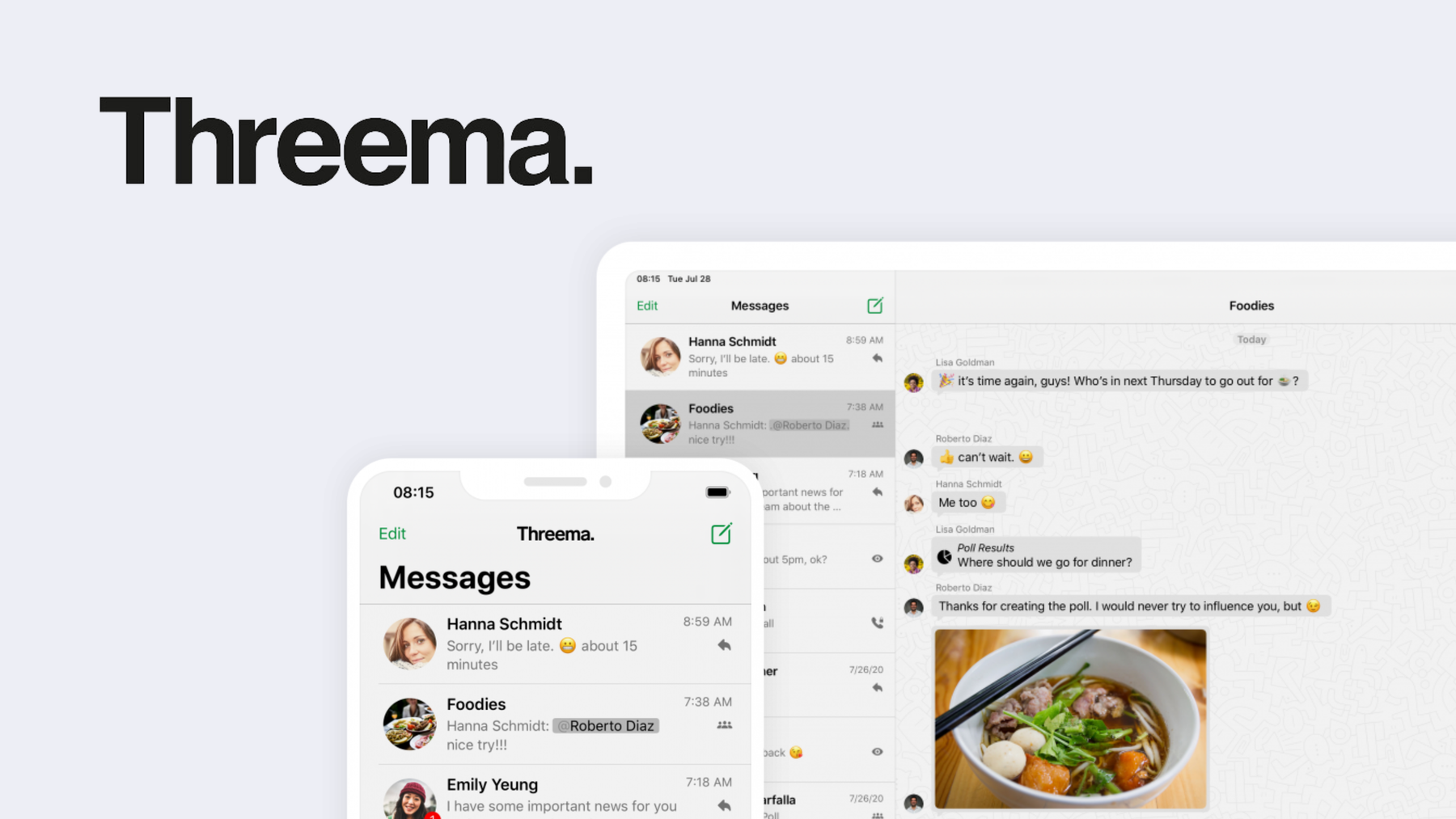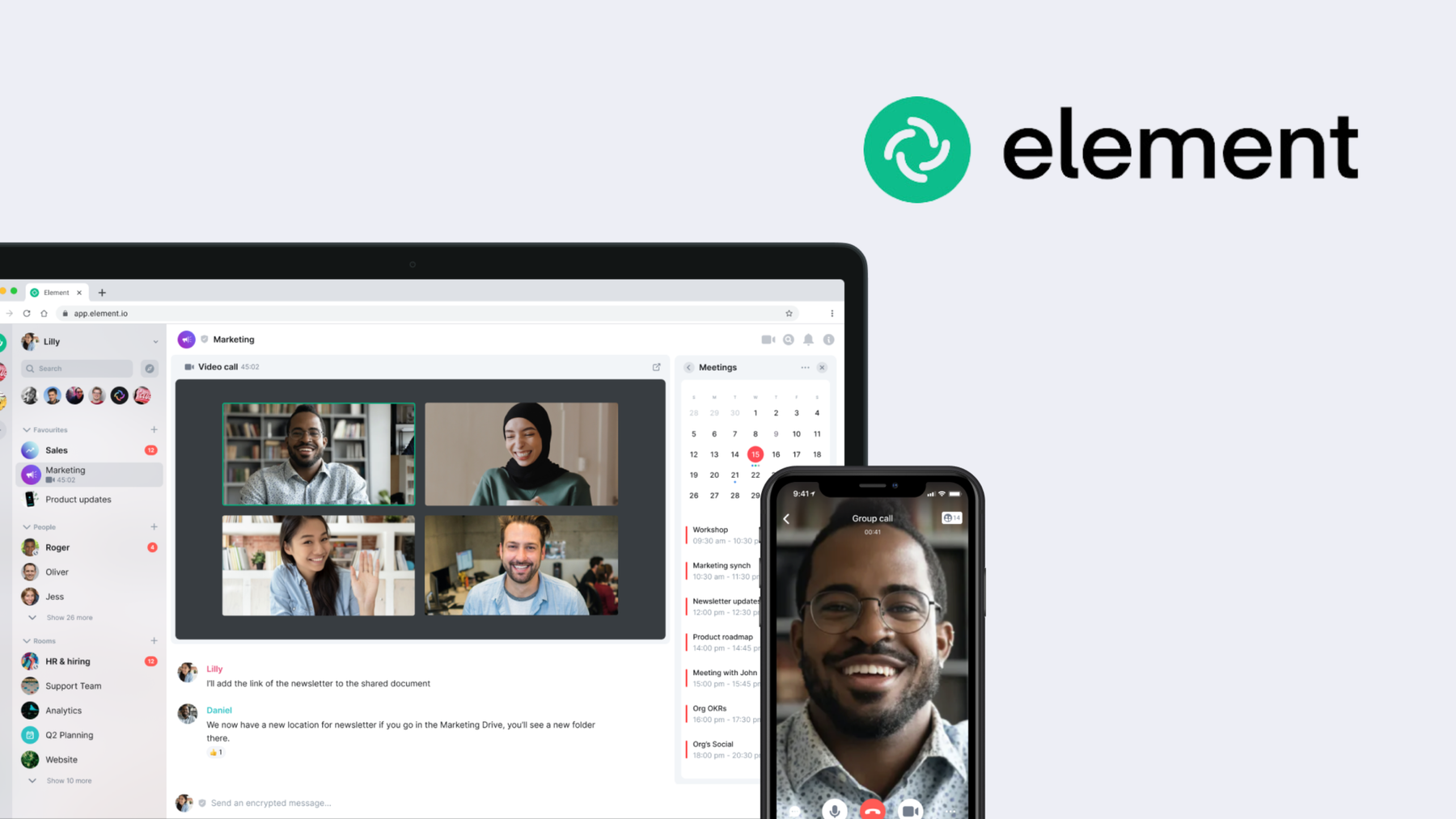How to safely share a password
It’s important to know how to send a password securely because sharing it via any platform is often not safe which can have dire effects on your online safety.
Quick Summary: Secure ways to share a password
- In person, face-to-face
- Through a password manager
- Via end-to-end encrypted email
- Via secure messaging platforms
Risks of sharing passwords
There is a risk involved in sharing sensitive information online, especially your passwords. And with many shared accounts like Netflix and Amazon, it’s worth taking some extra measures to protect your account login details by sending them through more secure channels. If you send these private passcodes via your everyday messaging platforms or social networks like a DM via X (Twitter), your account credentials are vulnerable. Let’s take a look at some of the most common risks of sharing passwords without extra security.
1. Unauthorized access to your account: If an unauthorized person gets access to a password you have shared, one of the most likely cases is that they will hack your account. Once the malicious attackers have got access, they can steal your data, conduct malicious activity like making unauthorized transactions, and take over your account.
2. Increased risk of data breaches: If you share your password via unsecured platforms, there’s an increased risk of falling victim to a data breach. These days, companies we trust face massive data breaches – for example, Dropbox, or Yahoo Mail who suffered the biggest data breach in history and should be deleted. So if your passwords are leaked, this could lead to bigger data loss and could put your entire online security at risk.
3. Potential identity theft: Of course the degree of damage caused by a leaked password varies. But if a third party does gain access to your password, there is a chance of identity theft due to this person having access to personal information within the account.
4. Further compromise: It’s no secret that most people use the same (often weak) password for multiple accounts, and if not identical, they might just change a number or symbol. In a recent survey conducted by Tuta Mail on its users, it found that 16% used a password of up to 10 characters and 32% passwords of 11-15 characters which in both cases are not considered strong enough. The optimal password length is 16 characters or more. Unfortunately, malicious actors who try to steal your passwords have high-tech methods and can perform different types of attacks, for example, a credential stuffing attack to gain access to your other accounts. So if they get access to one password, there’s a very high chance, they will gain access to your other accounts leading to further compromise of your online identity.
Now that we have covered the most common risks of sending your private passwords casually via social media networks and messaging apps, let’s take a look at how you can share a password with security and privacy.
Best ways to send a password securely
Undoubtedly, the most secure way to share a password is in person, face-to-face. Yes, we know, this isn’t very achievable in today’s day and age. In most cases you receive a WhatsApp or email and need to share the password then and there – this is when a password manager or end-to-end encrypted messaging platform will do the job. Let’s explore the more modern, quick, and easy ways to safely send a password below.
Make use of a password manager
Bitwarden, 1Password, and Keeper are all great private and secure password managers that have a password sharing feature. Source: Bitwarden, 1Password, Keeper.
Using a secure password manager is the best way to not only store your password in one safe vault and get strong passwords automatically generated for you, but it’s also a great way to share passwords. Most password managers offer a feature to securely send login credentials to others end-to-end encrypted.
Recommended password managers
1. Bitwarden
Bitwarden is a great password manager that’s open source, zero-knowledge, and it end-to-end encrypts your login data. More than being a good password manager, it also has a feature that allows you to share passwords securely.
2. 1Password
1Password is an encrypted password manager that allows you to create and securely store your private passwords with ease. 1Password lets you invite guests to a shared vault that holds the password or private login credentials you want to share.
3. Keeper
Keeper is a password manager with a strong focus on privacy and security with its zero-trust and zero-knowledge encryption. Keeper’s One-Time Share allows you to securely send passwords and files with top security and privacy.
If you’d like to learn more about these password managers, check out our ultimate guide to the best password managers.
Use an encrypted email provider
When we think of email, we usually associate it with being a more secure, formal, and private means of communication. And while it should be all those things, unfortunately, it isn’t the case. Especially if you use big tech providers like Gmail or Outlook which do not end-to-end encrypt your emails or mailbox. Luckily, sending a password via email is safe if you use an appropriate email provider like Tuta Mail.
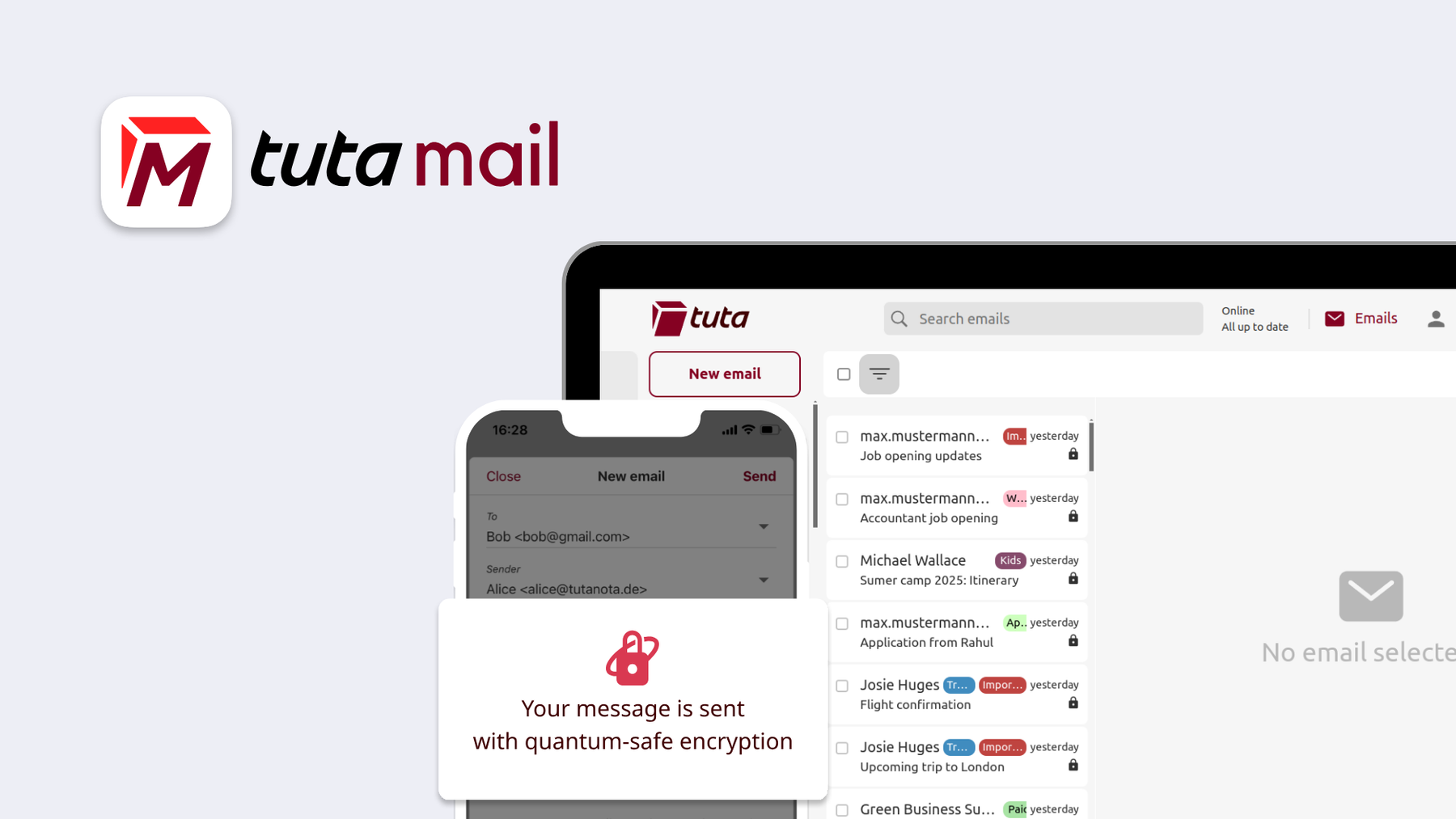

Another secure way to share a password is via encrypted email like with Tuta Mail. Tuta end-to-end encrypts your emails with post-quantum encryption to ensure all important information remains secured and private.
Tuta Mail is the best provider you can use to send a password securely via email. Tuta is a privacy-focused email provider, built in Germany with strong data protection, and as a company it has no access to your private emails or mailbox. With its quantum-proof end-to-end encryption, and robust security measures in place, Tuta Mail is considered the most private and secure email provider. Another benefit is that Tuta is available on any device, and sign up is anonymous and free!
Make use of encrypted messaging apps
A simple way to share a password is via a messaging platform like Signal, Threema, or Element. These WhatsApp alternatives are all end-to-end encrypted and privacy focused. Source: Signal, Threema, Element.
Another easy way to securely send a password is via an end-to-end encrypted chat app. WhatsApp may have come to mind and you might be wondering if it’s safe to send passwords via the platform. While it is the most used messaging app globally, and it is end-to-end encrypted, one must remember who its parent company is: Meta. WhatsApp’s sibling companies Facebook (who knows scary amounts about you) and Instagram are not known for good privacy protections… Plus, all these tools are owned by a big tech company that makes billions off personal data and ads. So it’s only fair to recommend a Meta alternative. Luckily, there are encrypted messaging alternatives that are just as easy-to-use and accessible as WhatsApp so you can easily send a password from your iPhone or Android securely!
1. Signal
Signal is the most secure WhatsApp alternative with its quantum-resistant encryption protocol. What’s great is that it’s a free, popular privacy-focused messaging platform with 40 million active users per month, and it’s available on all platforms.
2. Threema
Threema is a solid choice if you want a secure messaging app without needing to share your phone number and don’t mind paying a one-time fee. With Threema, you can securely send a password with the knowledge that your communications are end-to-end encrypted, and that your metadata collection is minimal.
3. Element
Element (formerly Riot) isn’t as popular as Signal, but it offers a secure and private way to communicate easily. It’s another recommendable messaging app that’s free, end-to-end encrypted, open source, and like Threema doesn’t require you to use your phone number.
Interested in learning more about secure messaging? Check out Tuta’s guide to the best WhatsApp alternatives
Beyond passwords: protect everything you share online
For many people, banking details and account passwords are considered to be private information in need of extra security. While this information is extremely sensitive and should be shared via secure pathways, it’s also important to realize that all the information you share online should be protected and secure with end-to-end encryption. Not only will this increase your privacy and protect your digital identity, but it will also increase your protection against malicious threats.
You might think it sounds impossible to protect your online data, but with slow changes to privacy-focused, encrypted services like Tuta Mail, you are taking active steps to protect yourself and your data.
When interested in security and privacy – which obviously you are, otherwise you would not have read this blog post to the end - ditching Gmail or Outlook could be your best decision in 2025!


